Oh FCC, how you leak Sony products like no other. Interestingly enough, we never get leaks for Apple products, be it the next MacBook or wireless keyboard so I’m not sure why Sony has so much trouble. Either way, according to the FCC, Sony Interactive Entertainment has requested certifications for a “wireless adaptor” – code CUH-ZWA1U.
PlayStation
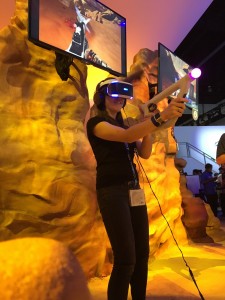 Jim Ryan, Sony Computer Entertainment Europe’s president and chief executive already gave some interesting insight as to why God of War tends to perform better in North America versus Europe. With PlayStation VR just a few months away and Sony beginning their marketing push, the PlayStation exec shared his thoughts on VR and their competition. When asked if he feels “PS VR is a bellweather of sorts for mainstream adoption of VR,” Ryan said:
Jim Ryan, Sony Computer Entertainment Europe’s president and chief executive already gave some interesting insight as to why God of War tends to perform better in North America versus Europe. With PlayStation VR just a few months away and Sony beginning their marketing push, the PlayStation exec shared his thoughts on VR and their competition. When asked if he feels “PS VR is a bellweather of sorts for mainstream adoption of VR,” Ryan said:
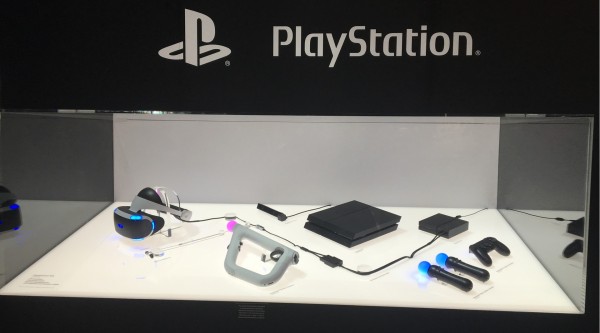
In late March, Sony opened up PlayStation VR pre-orders for the first time on Amazon and they sold out within minutes. Sony followed with another pre-order offering the following week to the same result. Now months later, PlayStation VR continues to do well prior to its release with lines forming in Japan to order one.
Now Sony opened up pre-ordering via GameStop for the first time and the results were by now predictable.
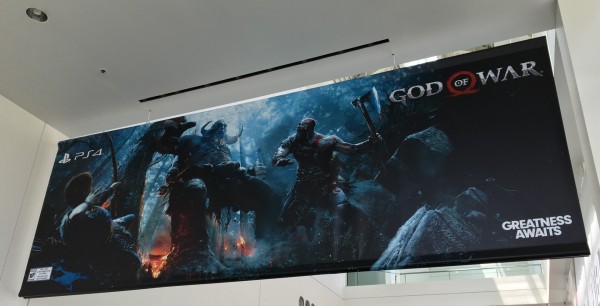
It should be of little surprise that certain games perform better in one country versus another. For example, you can be assured that Madden titles do littles sales in Europe while in the United States, they’ve become a pillar for EA. On the other hand, FIFA games are all the craze throughout the world but enjoy far less success in the US as we’re far less cultured around football soccer.
I would have assumed an exclusive game like God of War would have a more universal appeal but according to Jim Ryan, Sony Computer Entertainment Europe’s president and chief executive, that’s not the case and the reasoning is quite interesting.
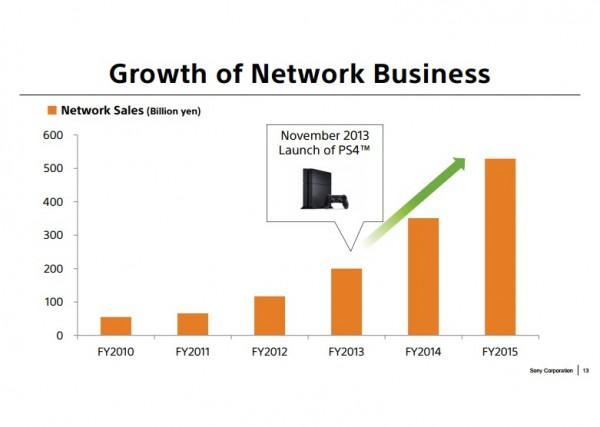 While a lot of Sony’s business like cameras are doing well and other divisions like TV have finally become profitable, none are experiencing growth like PlayStation. During a recent Corporate Strategy Meeting in Tokyo, Sony had this to say to investors:
While a lot of Sony’s business like cameras are doing well and other divisions like TV have finally become profitable, none are experiencing growth like PlayStation. During a recent Corporate Strategy Meeting in Tokyo, Sony had this to say to investors:
- Sony considers the Game and Network Services segment the largest growth driver of its mid-range corporate plan, and as of May 2016, PlayStation 4 has cumulatively sold through more than 40 million units to customers worldwide, continuing its rapid growth and expansion as the fastest-selling console in PlayStation history. The platform as a whole, including network services, is receiving widespread customer acclaim, and profit growth is exceeding the expectations held when the mid-range corporate plan was initially formed.
But beyond the PS4, network services like is expected to see a 50% increase in sales while the company gets more bullish on VR.
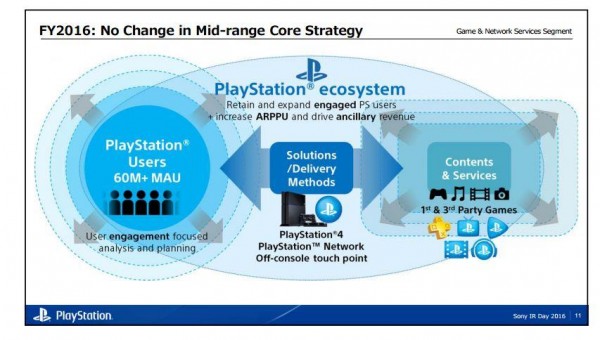 Sony’s network services have been on a bit of a roll. By now, we all know that PlayStation as a hardware is doing fine with over 40 million PS4’s sold to date – but the importance of Sony’s network services is perhaps even greater than the consoles they sell. That’s because long after Sony’s sells you a console, they still need to make money and network services are one such way. In fact, with PlayStation Vue, which recently surpassed 100,000 subscribers, the streaming TV app is actually available on more non-Sony devices.
Sony’s network services have been on a bit of a roll. By now, we all know that PlayStation as a hardware is doing fine with over 40 million PS4’s sold to date – but the importance of Sony’s network services is perhaps even greater than the consoles they sell. That’s because long after Sony’s sells you a console, they still need to make money and network services are one such way. In fact, with PlayStation Vue, which recently surpassed 100,000 subscribers, the streaming TV app is actually available on more non-Sony devices.
As for PlayStation Plus, Sony is approaching 21 million paid subscribers. During Sony’s Investor Day Briefing, PlayStation executive Andrew House shared his thoughts on Microsoft’s Play Anywhere strategy which is similar to Apple’s policy which allows you to purchase an app once and have it available on iPhone/iPad/iPod Touch and even Sony’s own Cross-purchase initiative which would allow you to download a Vita version of a title if you purchase the equivalent game on PS3 or PS4. Sony also had Cross-play on a handful of titles.
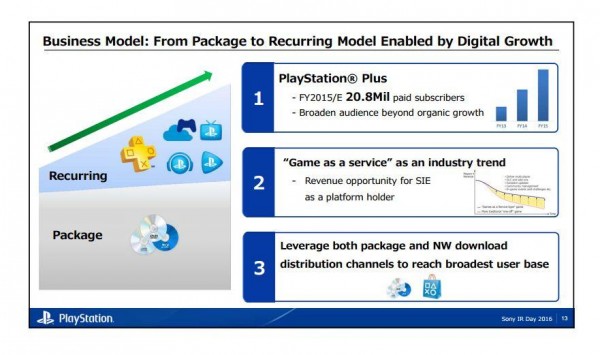 There is a fantastic quote (that I can’t find for the life of me) from Ken Kutaragi, the father of PlayStation during the PS3 era, in which he more or less stated that Sony would never charge for online play. Kutaragi believed that free online gameplay was a strategic differentiator between PS3 and Xbox 360, and perhaps even a ‘right’ for gamers. Incidentally under Kutaragi, the PlayStation brand arguably suffered.
There is a fantastic quote (that I can’t find for the life of me) from Ken Kutaragi, the father of PlayStation during the PS3 era, in which he more or less stated that Sony would never charge for online play. Kutaragi believed that free online gameplay was a strategic differentiator between PS3 and Xbox 360, and perhaps even a ‘right’ for gamers. Incidentally under Kutaragi, the PlayStation brand arguably suffered.
Fast-forward to PS4 and PlayStation Plus not only became a core component of the console, but transitioned over to pay a structure as well. Funny enough, the PlayStation brand hasn’t been this popular in a decade.
A very interesting and telling graph depicting Sony’s Game & Network services rise and fall throughout the years. It’s worth noting that the above has not been adjusted for inflation. With PlayStation Vue now doing some decent business, having just surpassed 100K subscribers, and PlayStation VR around the bend, it’s no surprise that Sony is bullish on the division’s future.
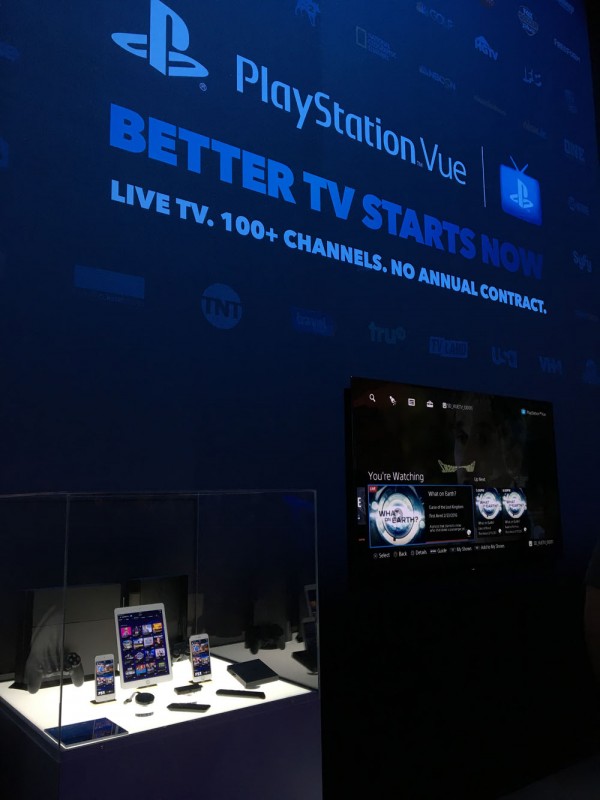
Sony has always lacked the ability to create a marriage between its entertainment and electronic businesses. Despite ownership of media being one of the most important drivers of technology and Sony owning one of the largest movie and music studios, the tech giant has never been able to leverage its media assets to push any of its products in a meaningful way. Ironically Apple, which does not own a film or music label, has always been able to use media to drive forward its products like the iPod, Apple TV, and now Apple Music.
Just a few of Sony’s failed media services in the past five years include Music Unlimited, Movies Unlimited, and Qriocity but there are plenty more to be added to that list. Just think about how Sony backs the awful, terrible, and true garbage that is UltraViolet and Ultra, their new 4K streaming service that will likely lead nowhere. However, like PlayStation, which has bucked the trend of Sony products that at times lack greater worldwide appeal, PS Vue is another service that seems to be gaining meaningful traction by consumers.
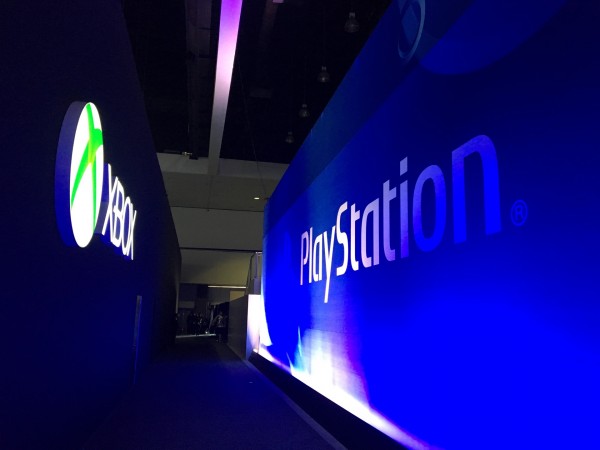
It’s fairly obvious that unless something drastic takes place in the gaming landscape, PlayStation 4 will be the runaway winner as Nintendo for all intents and purposes is no longer able to compete on any meaningful scale and Xbox One is doing nearly half the numbers PS4 is posting.
Prior to E3, the rumor mill was abuzz with the potential announcement of PS4 4K. While the console didn’t make an appearance at the show, Sony did confirm its existence. Till now, we all assumed that the upgraded PS4 was to be created in part to push gaming forward with new capabilities and to combat future upgraded versions of Xbox like the Scorpio. However there is likely another angle to all of this.
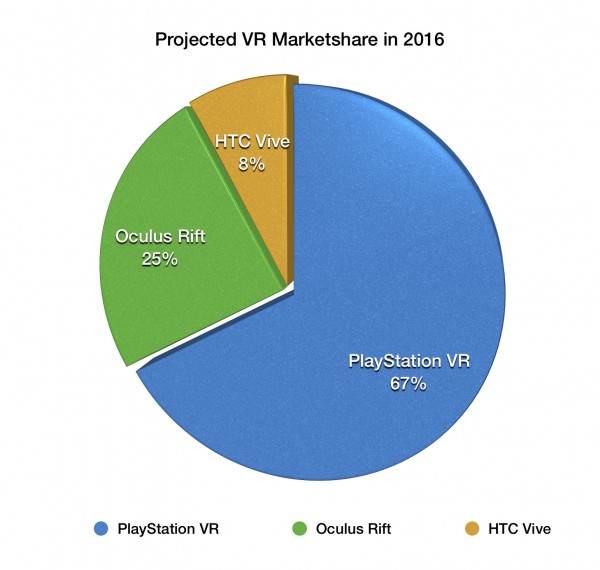 While the Oculus Rift and HTC Vive have now been shipping for a few months and will enjoy a near 6-month lead time when PS VR launches this October, the reality is that they won’t be much of a challenge to Sony. After all, who wants to purchase a $1,500+ rig on top of an $800 headset, just to get into VR in the heydays? For it’s part, PlayStation VR headset will cost $399 and will require PS4, a $349 console. Best yet, Sony has already sold over 40 million PS4 consoles, giving PS VR a large pool to tap into and because of that, they’re projected to own the VR market by year’s end.
While the Oculus Rift and HTC Vive have now been shipping for a few months and will enjoy a near 6-month lead time when PS VR launches this October, the reality is that they won’t be much of a challenge to Sony. After all, who wants to purchase a $1,500+ rig on top of an $800 headset, just to get into VR in the heydays? For it’s part, PlayStation VR headset will cost $399 and will require PS4, a $349 console. Best yet, Sony has already sold over 40 million PS4 consoles, giving PS VR a large pool to tap into and because of that, they’re projected to own the VR market by year’s end.
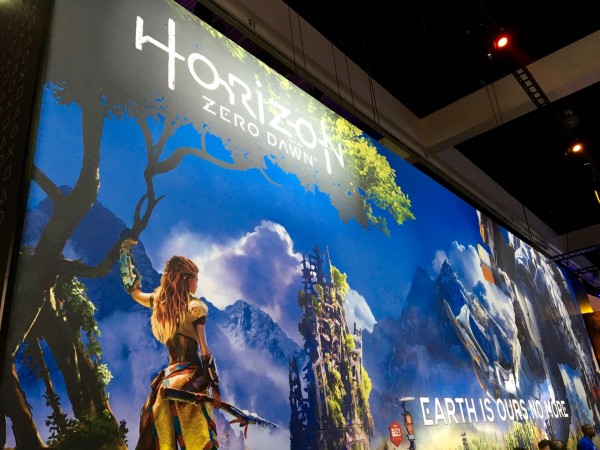
I’ve always been firmly in the camp that the decision to delay a game is a good thing. After all, as a developer, you only get once chance to impress audiences for the first time. Sure, all games, no matter how bad or good they are, come with patches, but if you’ve released a game with problems, people are going to know. Case in point, Uncharted 4 was delayed twice but nobody is talking about that now. Instead, the conversation is always around how amazing it turned out and that ‘Naughty Dog did it again.’
Speaking with GameSpot, game director Mathijs de Jonge on why they decided to delay Horizon: Zero Dawn till February 2017:
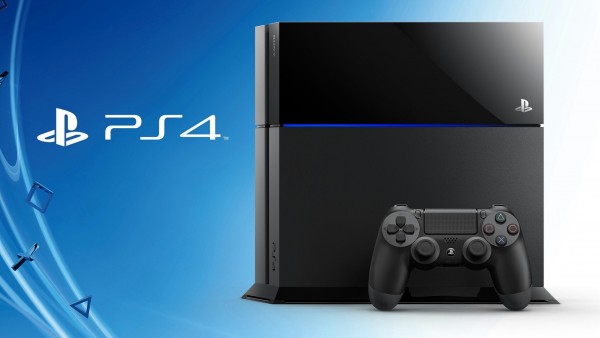
Sony and other console makers till recently had been barred from China, a country which imposes a ton of regulations on foreign companies. Despite all that, seeing how massive their population is, with a middle class that’s larger than the number of people who reside in the US, it’s no wonder that companies like Sony and Apple would be willing to do what they must in order to be able to do business there.
Now with the PS4 finally cleared for sale in the country, Sony has begun their marketing blitz with their first TV ad.
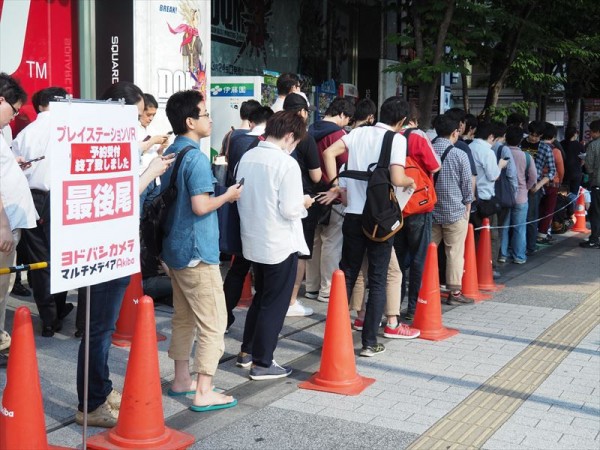
With the US becoming PlayStation’s most important and largest market, it’s no surprise that it was first on Sony’s list to receive VR pre-orders. Now with a solid E3 behind it, Sony has turned its attention towards Japan where PS VR became available for pre-order for the first time on Saturday and boy are things looking good.
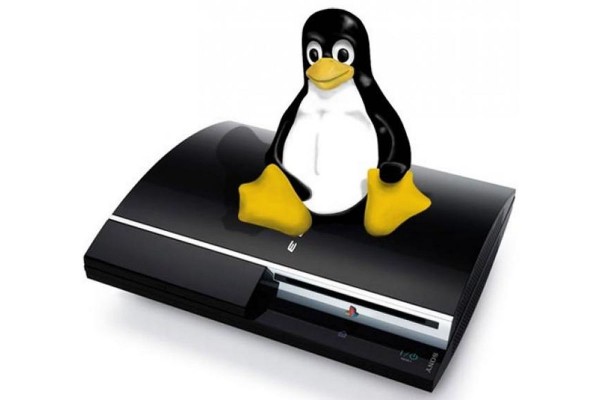
What a bizarre turn of events. As somebody who had installed Linux on their PS3, merely to try it out, I can attest to how terrible the experience was. Besides it not being super intuitive to accomplish, once installed, Linux was slow and limited in what you could do. Who would want to reboot the PS3 and launch the Linux five minutes later to do some light web browsing or chatting? That’s about as far as my installs went before I completely forgot about it. I guess others didn’t?



You must be logged in to post a comment.